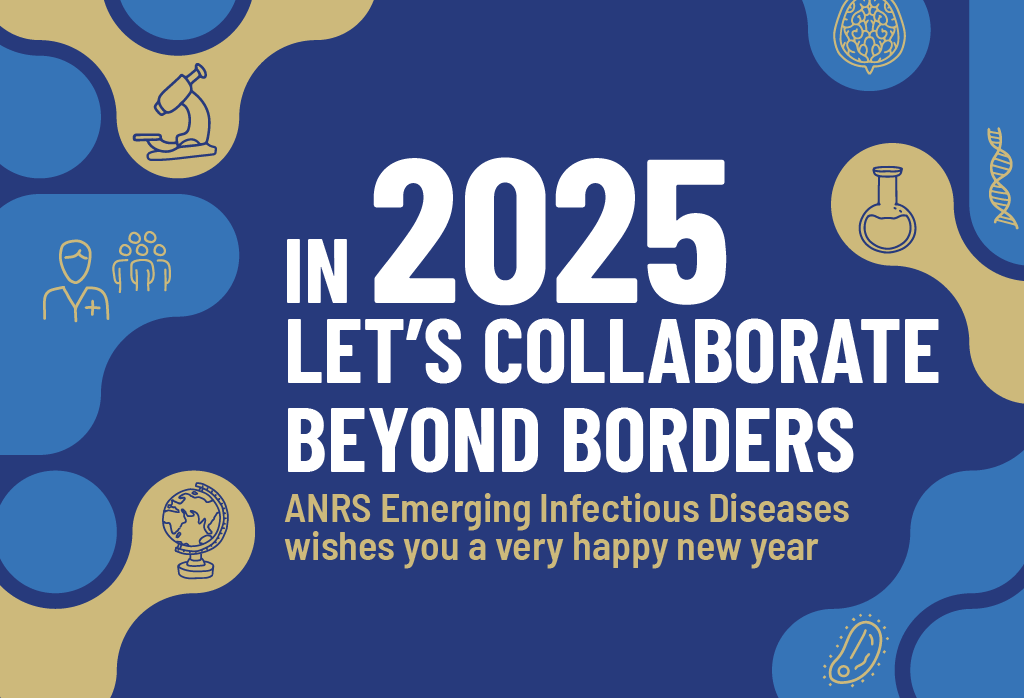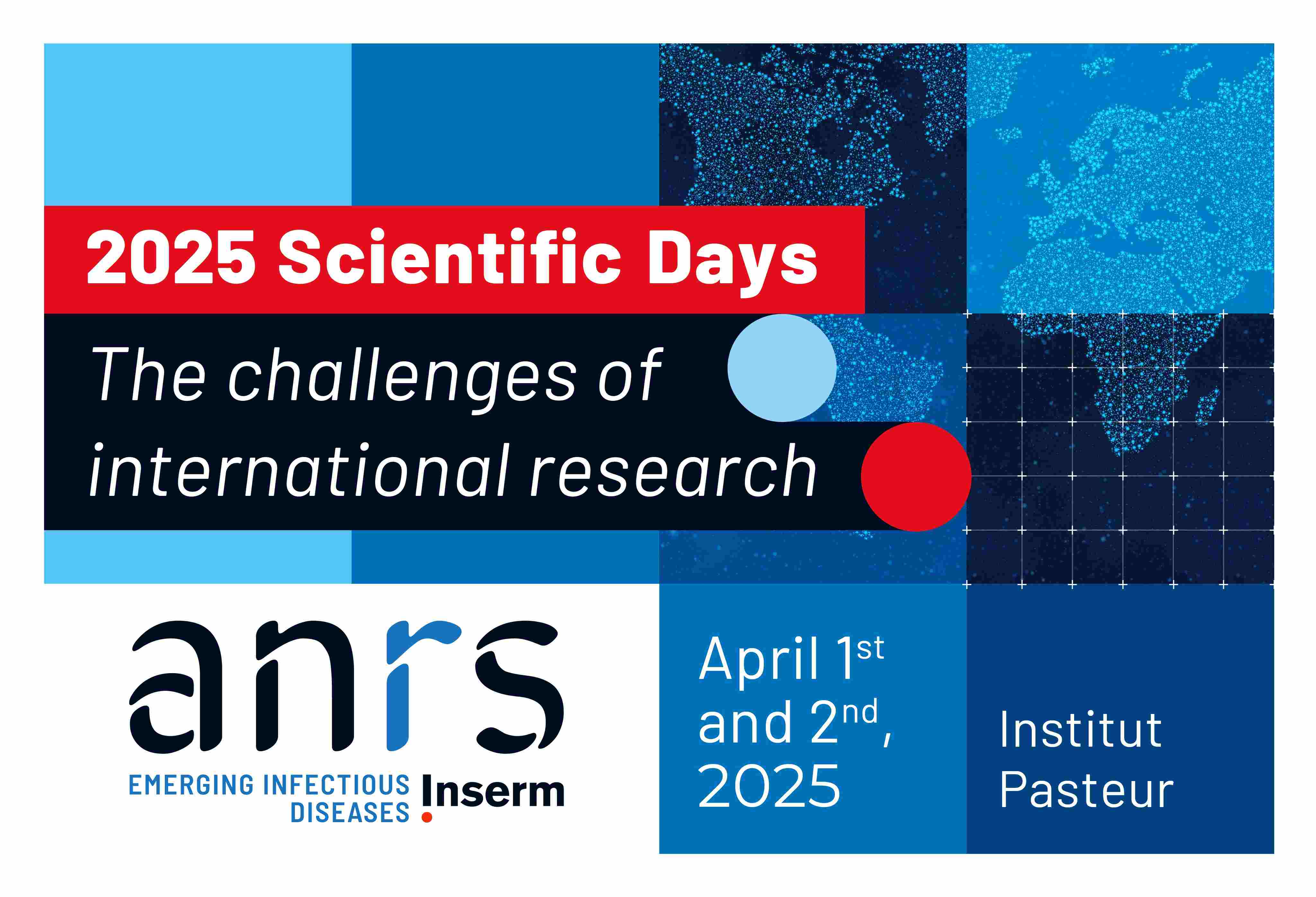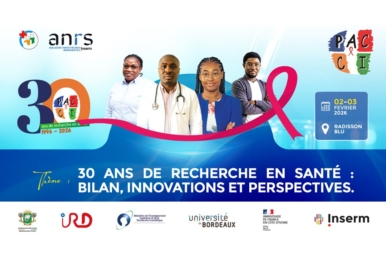
2025 ANRS MIE New Year address
ANRS Emerging infectious diseases 2025 New Year address by Yazdan Yazdanpanah, director of ANRS MIE
Published on 06 January 2025
2025: Building on scientific advances, anticipating health threats and strengthening our international collaborations
2024: The agency confirms its role as a scientific driver
To put an end to HIV transmission by 2030, ANRS MIE is fully committed to innovative projects and ambitious partnerships – particularly with regard to prevention and cure
The results of lenacapavir, presented for HIV pre-exposure prophylaxis in 2024, marked that year. We are talking about a major step forward in the preventive treatment of HIV. A new tool that opens up promising prospects for the expansion of preventive coverage across populations. We must now strategically support its establishment and roll-out.
In 2024, the initial results of the major national survey ‘Context of sexuality in France‘ conducted by Inserm on the initiative of ANRS MIE were published. This highly anticipated survey, funded by ANRS MIE, will enable us to guide French sexual health strategy between now and 2030, with a particular focus on the prevention of sexually transmitted infections.
Our agency has also published – in conjunction with France’s National AIDS & Viral Hepatitis Council (CNS) and National Authority for Health (HAS) – recommendations for the therapeutic, curative and preventive care of people living with HIV and people exposed to HIV. These recommendations reflect the importance of synergy between scientific research and public policy to sustainably transform health practices.
2025: Pursuing our research priorities and anticipating health threats
The new year will be about consolidating and amplifying the major advances initiated in 2024, to better anticipate the health challenges ahead
In the fight against tuberculosis, we took concrete steps in 2024 to compensate for the lack of funding by launching a joint call for proposals with the South African Medical Research Council. This initiative, for which the first selected proposals will be revealed in 2025, aims to accelerate scientific progress to effectively combat this disease by supporting the emergence of new treatments in particular and by fighting resistance.
Faced with the growing burden of viral hepatitis, responsible for over 1.3 million deaths each year – a mortality rate higher than that of HIV – the agency has invested in ambitious projects to start in 2025. These initiatives will particularly focus on fighting transmission in four countries in Africa and two in Asia.
The France 2030 strategy, with the Priority Research Programme and Equipment for Emerging Infectious Diseases (PEPR MIE), enters a decisive phase in 2025. In order to focus research efforts and resources, the scope of the 2024 PEPR MIE call for proposals was narrowed down to three groups of infectious diseases: respiratory infections of viral origin, arboviruses and haemorrhagic fevers. This represents a new step in accelerating the implementation of ambitious, structural projects aimed at understanding, preventing and controlling emerging infectious diseases, while integrating a One Health approach.
The ‘Emergence’ system, designed to respond in the event of a health crisis, proved to be an essential tool in 2024 for monitoring and anticipating health crises. Three ‘Emergence units’ were opened in 2024: mpox, H5N1 and Oropouche. This surveillance mechanism enables us to quickly detect weak signals and organise an effective, concerted response to epidemics.
International collaborations: the key to the future
ANRS MIE contributes to France’s influence within the European research sphere
By coordinating the European Partnership in the context of preparedness for pandemics and emerging infectious diseases, ANRS MIE asserts its position as a French institution recognised for its expertise in infectious diseases and for contributing to France’s influence within the European research sphere. In doing so, ANRS MIE illustrates its ability to bring European forces together around the same research vision.
The agency continues to consolidate and develop its international network. In 2024, we laid the groundwork for new collaborations on emerging infectious diseases with our partners, with which we initially worked on HIV, tuberculosis and hepatitis. After Guinea, Democratic Republic of the Congo and Côte d’Ivoire, we are starting to open up to emerging infectious diseases in Senegal, Burkina Faso, Brazil, Vietnam and Cambodia. These partnerships enable us to pool our knowledge and resources in the face of challenges that go beyond borders.
2025: An opportunity to showcase the spirit of international collaboration
The year 2025 will be an opportunity to showcase this spirit of collaboration. The 2025 ANRS MIE scientific days, to take place on 1 and 2 April, will be devoted entirely to international collaborations. This year’s edition of the event, entitled ‘The challenges of international research‘, will provide a space for discussion and inspiration. In a world where the temptations of working in isolation are sometimes felt, ANRS MIE resolutely chooses openness and cooperation.
Through our expertise, networks and shared commitment, we are dedicated to building research that addresses global health challenges.





